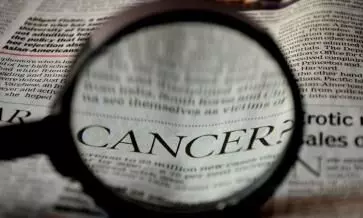
Scientists develop Saliva Test to detect breast cancer risk
text_fieldsRepresentational.
London: the United Kingdom-based scientists have discovered that the risk of breast cancer can be diagnosed by a saliva test of an individual, IANS reported.
The saliva test was developed by a team from the Machester University of UK, according to Daily Mail. The study results have been published in the journal Genetics in Medicine.
The team used the new saliva test, along with the regular standard medical and life history information and a measure of women's breast density. The report said that the test predicted a higher risk in just under 50 per cent of those who got it. The study had subjected 2,500 women over ten years to see the risk of breast cancer, and 644 out of them developed the disease.
The report noted that nearly one in 50 women with breast cancer had mutations in the BRCA1 or BRCA2 genes, which increased their risk of the disease. Of the nine women with breast cancer and a BRCA mutation in the study, only three would have been able to find this out via an existing gene test. The team found that more mammogram screening is not only required for higher-risk women, but almost one in five low-risk women also need it, the report said.
Professor Gareth Evans, who led the study, said, "If all these women took drugs to prevent breast cancer, that could prevent a quarter of breast cancer cases and potentially save the lives of 2,000 women a year. If young women at high risk were offered annual mammograms, that could save hundreds more a year."
He added that the test is particularly important for women under 50, the age pool which makes up one in five cases of breast cancer.
Welcoming the "promising" test, UK Health Secretary Sajid Javid said, "We are constantly monitoring innovative research like this to help inform our approach and get patients treated quicker."
Therefore, the team recommended that the new test should be rolled out to women at around the age of 30, well before they become eligible for mammograms aged 50, the report said.























